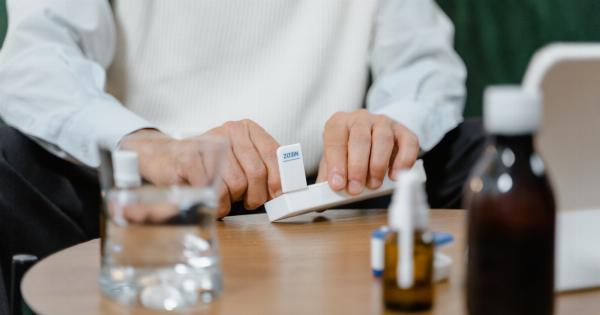Genital herpes is a sexually transmitted disease caused by the herpes simplex virus (HSV-1 or HSV-2). The virus can cause painful blisters or sores on the genitals, rectum or mouth.
There is no cure for genital herpes, but there are ways to manage the symptoms and prevent outbreaks. Here are some ways to ease genital herpes symptoms:.
1. Take antiviral medication
Antiviral medication such as acyclovir, famciclovir, and valacyclovir can suppress the virus and reduce the severity of the outbreaks. These medications are available in pill form and are most effective when taken early on in an outbreak.
Some people with frequent outbreaks may also take these medications as a daily suppressive therapy to reduce the frequency of outbreaks.
2. Maintain good hygiene
Keeping the affected area clean and dry is key to preventing secondary bacterial infections and promoting healing. Gently wash the area with mild soap and water, pat dry with a clean towel, and avoid touching or scratching the sores.
Wear loose, breathable clothing that won’t irritate the sores.
3. Use topical treatments
Over-the-counter creams and ointments such as lidocaine or prilocaine can relieve pain and itching. Apply a thin layer to the affected area as directed. Witch hazel or aloe vera gel can also provide cooling relief.
4. Apply cold compresses
Applying a cold, damp cloth to the affected area can help ease pain and reduce swelling. Hold the compress on the area for 10 minutes at a time, several times a day. Avoid using heat, which can worsen the symptoms.
5. Practice safe sex
Condoms can help prevent the transmission of genital herpes, but they do not provide 100% protection. Avoid sex during an outbreak and use condoms between outbreaks.
Inform your partner(s) if you have genital herpes so they can get tested and take precautions.
6. Manage stress
Stress can trigger outbreaks and make the symptoms worse. Practice relaxation techniques such as deep breathing, meditation, or yoga. Get enough rest, exercise regularly, and maintain a healthy diet to help manage stress.
7. Avoid triggers
Some people with genital herpes may experience outbreaks triggered by certain foods, medications, or activities. Identify your triggers and try to avoid them if possible.
Common triggers include alcohol, caffeine, chocolate, nuts, citrus fruits, and stress.
8. Get vaccinated for other STDs
Getting vaccinated for other sexually transmitted diseases such as HPV or hepatitis B can help prevent co-infection and reduce the risk of complications from genital herpes.
9. Seek support
Living with genital herpes can be stressful and isolating. Seek support from friends, family, or a support group. Talking to a therapist or counselor can also help you cope with the emotional impact of the disease.
10. Keep up with medical appointments
Regular check-ups with your healthcare provider can help monitor the progression of the disease and identify any complications. Your doctor may also recommend additional tests such as blood tests or cultures to confirm the diagnosis.




























